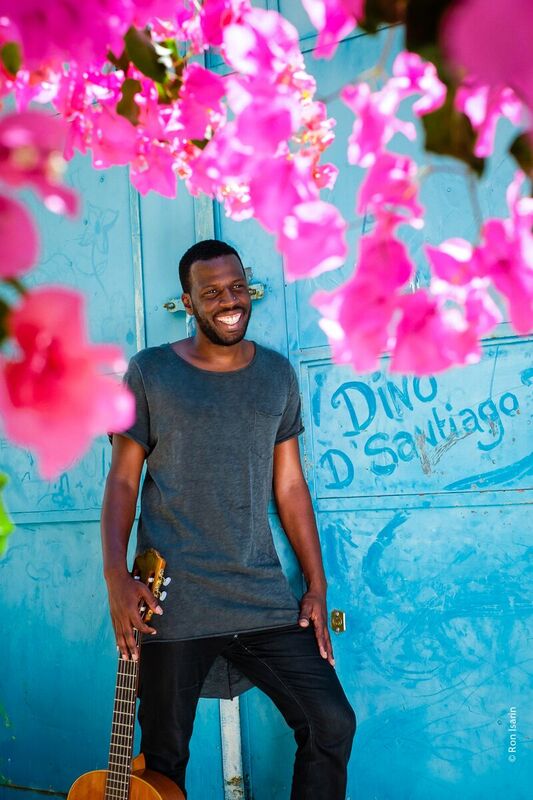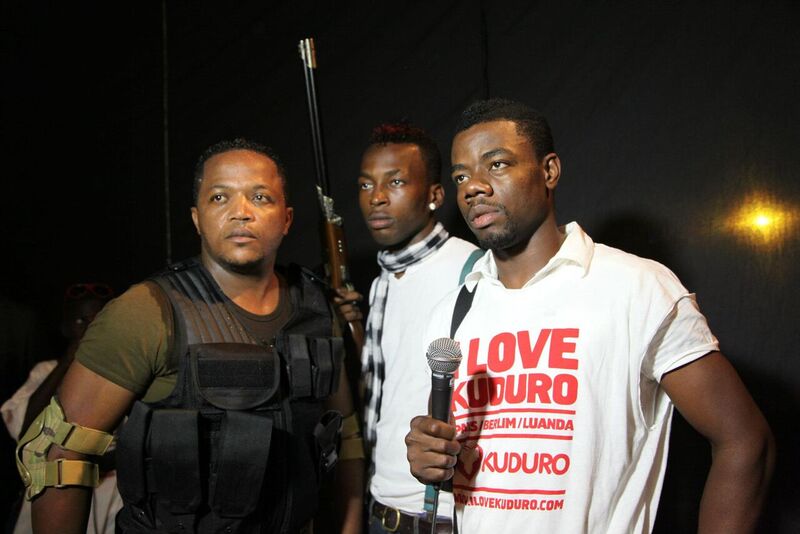Music from the Lusophone countries of Africa is steadily growing in popularity, but still many artists from Cape Verde, Mozambique, Angola, Guinea-Bissau and São Tomé and Príncipe do not get the international attention their thriving music actually deserves. These Portuguese-speaking countries have great artists (living at home or abroad) in the field of dance and urban music who are hardly known in Europe and the U.S. To stimulate musical exchanges between Lusophone Africa and Germany, the project LusAfro was launched at the Atlantic Music Expo (AME) 2017, held from April 10-13, 2017 in the Cape Verdean capital Praia on the beautiful island of Santiago.
Bringing the artists together in the context of AME was only the first phase of LusAfro. Here the first collaborations were presented to the public on the LusAfro Stage. For the second phase LusAfro travels to Germany to join the Odyssee Festival from July 19-22, 2017. A selection of artists will take part in the four-day road show. Finally, the third LusAfro gathering will take place in Berlin for the concert series Big Up! in November 2017.
Christine Semba, director of consultancy and special projects at Piranha Arts in Berlin, wrote the concept of LusAfro project. She asked Francis Gay, a French radio editor and head of music at the public radio station WDR COSMO in Cologne (Germany) and José da Silva (Harmonia Cabo Verde) to join in. She got the funding together and is the coordinator of the Lusafro project. Artistic directors are the German DJ, music producer, journalist and label owner Daniel Haaksman and Francis Gay.
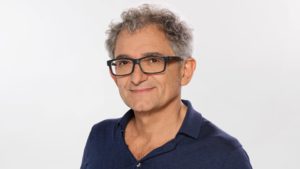 Francis Gay, an artistic director of LusAfro
Francis Gay, an artistic director of LusAfro
Francis Gay explains: “I have been attending the AME for a couple of years and got the idea that the world is not properly connected and especially when it comes to certain parts of Africa that are not connected at all. The idea was to find a new, fresh solution to connect the artists from Lusaphone countries. Fortunately our idea was supported by some funds in Germany, entrepreneur José da Silva from Harmonia, Piranha Arts and WDR Cosmo. The goal of the project is to connect urban African artists from Lusaphone Africa and from the diaspora in Lisbon with some German artists. In Cape Verde we have organized a full week of workshops, talks about marketing, music, technique, philosophy and films. We also had recording sessions in the studio, which will be released on a compilation at the end of the year.”
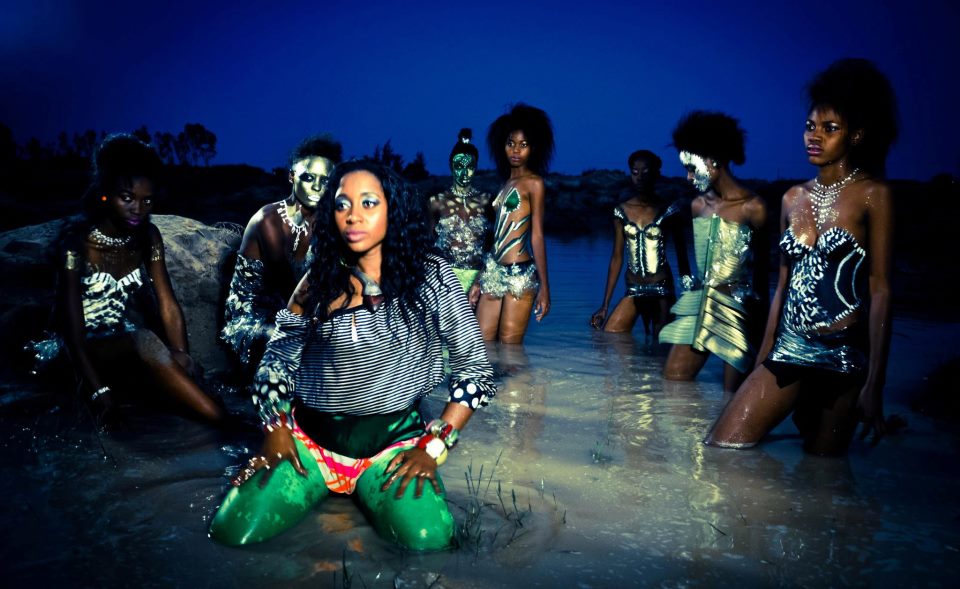 Dama do Bling, Mozambique’s queen of hip-hop
Dama do Bling, Mozambique’s queen of hip-hop
He continues: “The connection between the artists was absolutely amazing. The point is that an artist like Dama do Bling, Mozambique’s queen of hip-hop, doesn’t have contact with artists from Angola like Tony Amado, founder of the currently popular kuduro dance music. These artists also don’t know the people from the diaspora or from Cape Verde or Guinea Bissau. As you know Germans are very well organized. We had an urban approach and brought in an electronic producer from Berlin called Africaine 808. Everybody was enthusiastic about the idea of this meeting and worked hard and very structured. At the end of the week in Cape Verde we organized presentations, four of 40 minutes each on two stages. We also had the best Lusaphone DJ in the world, DJ Marfox from Lisbon. It was all very fresh. The artists came up with new ideas and so we had fantastic moments.
“Now after these experiences we are going to invite these artists again this summer in Germany. We have invited 25 people from the project, like kuduro stars Gato Preto (Mozambique/Ghana), Africaine 808 (Germany), Dino D'Santiago (Cape Verde), DJ Marfox (Portugal), and Fattú Diakité ( Guinea-Bissau) who will play four nights on open-air stages in Germany.
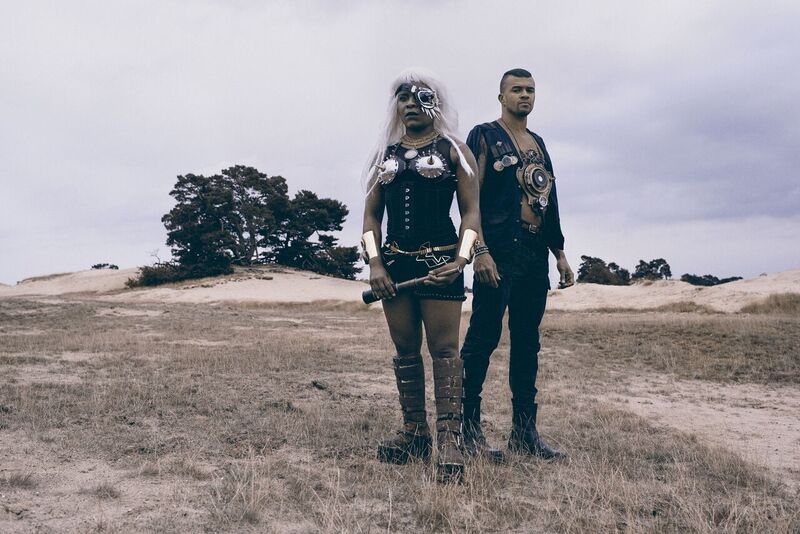 Kuduro stars Gato Preto. Photo by Alexander Wurm.
Kuduro stars Gato Preto. Photo by Alexander Wurm.
“Unfortunately not everybody who was also in Cape Verde, will be able to come. There will be some rehearsals at the radio station WDR Cosmo in Cologne, and then the invited artists go on tour. For autumn we are going invite all the people again with our partners. We are all going to Berlin for a big party at the end of November. It will be a real LusAfro urban club. It’s exceptional and a brand-new form of collaboration, discussion and dialogue. We in Europe have the North-South connection and vice versa but it’s also very important to make connections within Africa. Dialogue is the only solution. The artists in Africa need the chance to experience and to share. They have to learn to be artists on a professional level. They must not only be a big name in their own country, they have to travel as well.
"Kuduro pioneer Tony Amado is not that big internationally speaking. Everybody knows him but he is more or less only working in Angola. He sometimes goes to Lisbon but at the end of the day those Lusaphone artists are only big at home, but they want more and they deserve it. The idea behind this LusAfro project is to spread the news with a new impulse, hoping that it will be a good experience for everybody. At WDR Cosmo we can make good professional recordings and we can make real deep stories about the LusAfro project. The reception at Cape Verde was amazing. People from Canada, Mozambique, France and other countries all reacted very positively and with great enthusiasm. The interesting thing about LusAfro is that it’s not a band, but an interactive project which you can follow. ”
Bastiaan Springer is a producer for Radio 5 (Netherlands), presenter at The Concert Radio (The Netherlands), and a world music journalist for FRoots, Songlines and MixedWorldMusic.com.








